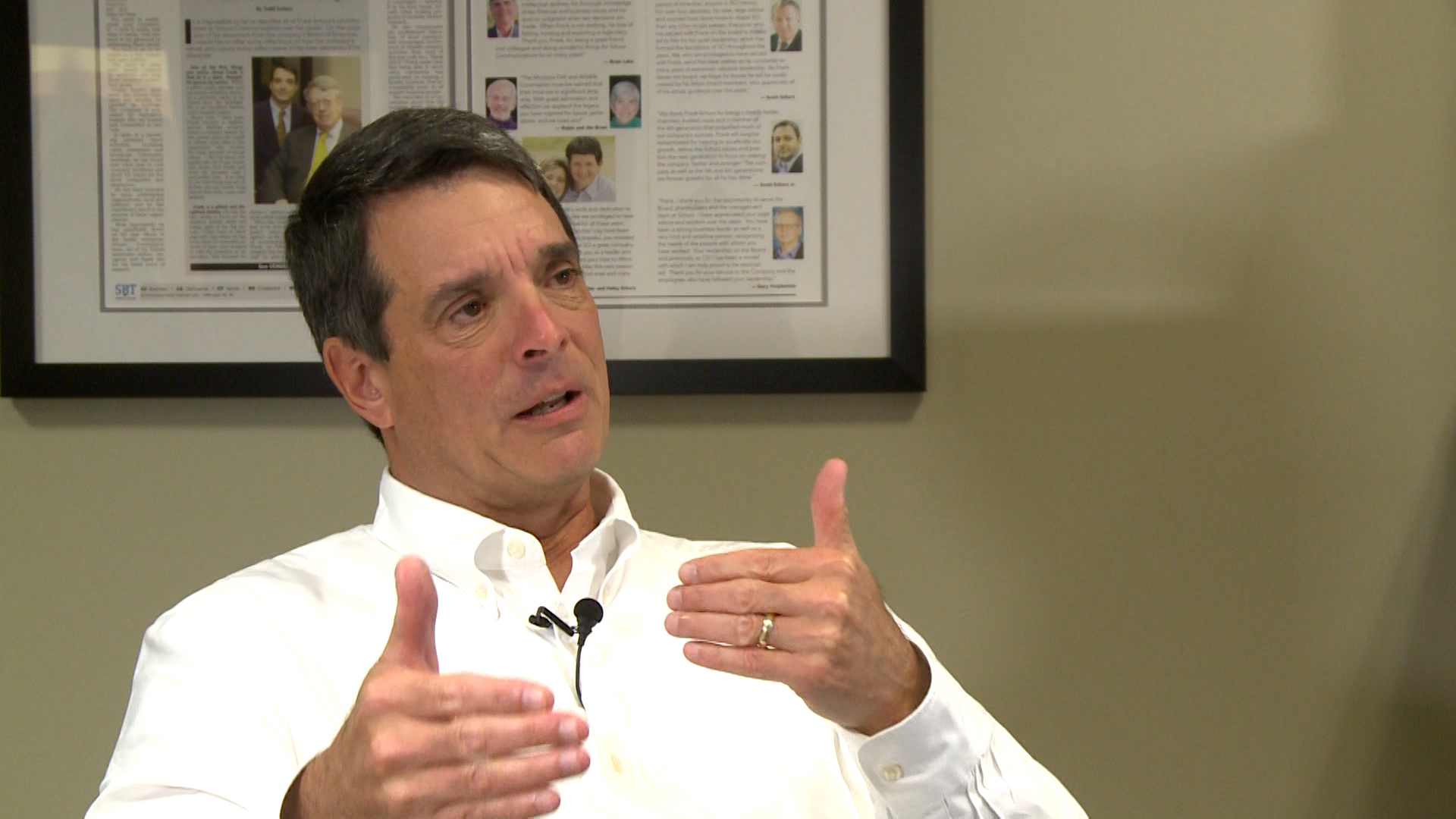Chapter 5
Behind the sale: An interview with Todd Schurz
A variety of factors led the Schurz family to sell its company’s publishing division in its fifth generation of newspaper ownership. Former Schurz Communications CEO Todd Schurz explained in an interview.
Sarah Vaughan
The Schurz family began its multi-generational trek through the newspaper industry covering local news in South Bend in the 1870s. Across five generations, the family collected a portfolio of properties serving central and southern Indiana, as well as Maryland, Michigan, South Dakota and Pennsylvania. It also expanded into radio and television.
Todd Schurz, former president and CEO of Schurz Communications, said even as a for-profit business the company’s mission was rooted in journalism. “…in terms of presenting facts, helping people get to the truth, and then how people can use that to make a better community, a better society, a better nation.”
Schurz stressed it was important that the company’s newspapers actively supported the communities in which they were based. But he said that doesn’t mean they were always proponents. He quotes his former senior vice president of publishing, Charles Pittman.
“I want our communities to feel like we are giving them a big hug. But just as your best friend can tell you something you may not like to hear you know they’re still your best friend.”
Despite a commitment to communities and journalistic values — and the benefits of a diversified portfolio — the company couldn’t escape the impact of a business model rooted in declining advertising revenue. That led to leaving traditional media platforms.
Schurz said there were two tipping points. In broadcasting, where Schurz owned both television and radio properties, it came when the company was ranked in the top one percent nationally, but its leaders realized they couldn’t scale up without sizeable risks. So when the opportunity arrived “to exit and have a good outcome,” they took it.
On the publishing side, Schurz said the company tried everything it could to keep newspapers going, including trying to combine smaller rural papers in an effort to enhance the overall product and again, scale up. But the company was “only marginally profitable.” Looking not that far into the future, Schurz said company leaders realized “some very difficult choices were going to need to be made,” ones he said they weren’t sure they could make.

Todd Schurz
“We just said, you know, we’re no longer the right owner,” he said. “And that was an emotionally difficult and intellectually humbling realization.”
There was also a family dynamic at play. It’s typical for subsequent generations to lose interest in family businesses or want to take them in new directions. Schurz says none of the latest generation — the sixth in the family ownership chain — are employed with the company or had a desire to be. The company is now focused on newer technologies — broadband and cloud managed services.
“There was a deep emotional tie to publishing because that's, that's what we began with and that's what we were forever,” he said. “And so, that was absolutely there across all the generations. But at the end of the day, while no one liked the decision, everybody thought it was the right decision to exit when we did.”
Schurz Communications announced the sale of all its newspapers to GateHouse Media and its private equity owners in January of 2019. The sale closed in August of 2019.
GateHouse Media wasn’t the only interested buyer that came knocking, Schurz said. But with GateHouse, Schurz Communications could do one transaction, selling their papers as a group instead of individually, which would have added complexity, time and expense.
"At the end of the day, while no one liked the decision, everybody thought it was the right decision to exit when we did."
“We felt like the papers needed to be under an ownership with more papers and more scale. Because in an industry with declining revenues, you had to figure out a new cost structure, and have more papers to do that across,” he said.
Right after the deal closed, GateHouse took control of a much larger newspaper chain, Gannett — and even took over its name.
Schurz said his company tried to negotiate the best arrangements it could for its newspaper employees, retiring some of them before the sale closed in August 2019. He said he was unaware of the GateHouse plans to acquire Gannett.
Schurz said he also recognized the realities of a company with roots in private equity.
“It can be very efficient,” he said. “Ruthlessly efficient.”
Chapter 6: Researchers, citizens decry the impact of ownership changes »
•••
Officials at Gannett would not talk to WFIU/WTIU for these stories. They sent a statement attributed to Jill Bond, news director of The Herald-Times.
Paper Cuts The reporting is supported by a grant from the Poynter Institute, a non-profit journalism school and research organization in St. Petersburg, Fla., and the Omidyar Network.









